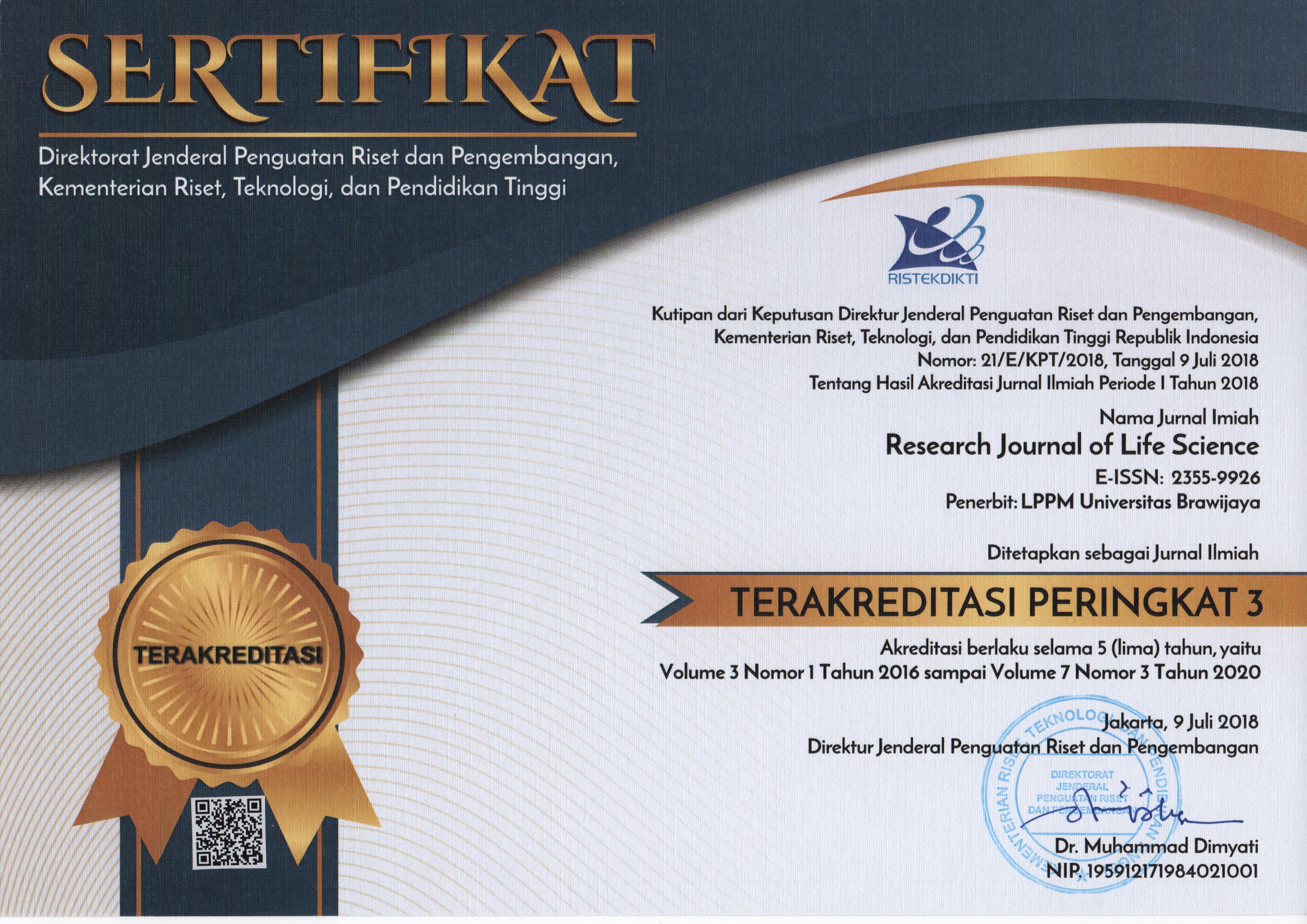The Effect of Mindfulness Meditation on Mental Illness among Nurse in ICU and ICCU
Abstract
Keywords
Full Text:
PDFReferences
Antony, M., Bieling, P., Cox, B., Enns, M., & Swinson, R. (1998). Psychometric Properties of the 42-Item and 21-Item Versions of the Depression Anxiety Stress Scales in Clinical Groups and a Community Sample. Psychological Assessment, 10(2), 176-181.
Banks, J. B., Welhaf, M. S., & Srour, A. (2015). The protective effects of brief mindfulness meditation training. Consciousness and Cognition, 33, 277-285. doi:https://doi.org/10.1016/j.concog.2015.01.016
Burke, J. F., Stulc, J. L., Skolarus, L. E., Sears, E. D., Zahuranec, D. B., & Morgenstern, L. B. (2013). Traumatic brain injury may be an independent risk factor for stroke. Neurology, 81(1), 33-39. doi:10.1212/WNL.0b013e318297eecf
Chiesa, A., Calati, R., & Serretti, A. (2011). Does mindfulness training improve cognitive abilities? A systematic review of neuropsychological findings. Clin Psychol Rev, 31(3), 449-464. doi:10.1016/j.cpr.2010.11.003
Chuang, C. H., Tseng, P. C., Lin, C. Y., Lin, K. H., & Chen, Y. Y. (2016). Burnout in the intensive care unit professionals: A systematic review. Medicine (Baltimore), 95(50), e5629. doi:10.1097/MD.0000000000005629
Craven, R., & Jensen, S. (2013). Fudamental of nursing human health and function. China: Wolter Kluwer Health.
Deklava, L., Circenis, K., & Millere, I. (2014). Stress Coping Mechanisms and Professional Burnout among Latvian Nurses. Procedia - Social and Behavioral Sciences, 159, 261-267. doi:https://doi.org/10.1016/j.sbspro.2014.12.369
Grecucci, A., Pappaianni, E., Siugzdaite, R., Theuninck, A., & Job, R. (2015). Mindful Emotion Regulation: Exploring the Neurocognitive Mechanisms behind Mindfulness. Biomed Res Int, 2015, 670724. doi:10.1155/2015/670724
Jang, S. K., Park, W. H., Kim, H.-I., & Chang, S. O. (2018). Exploring nurses’ end-of-life care for dying patients in the ICU using focus group interviews. Intensive and Critical Care Nursing. doi:https://doi.org/10.1016/j.iccn.2018.09.007
Jha, A. P., Stanley, E. A., Kiyonaga, A., Wong, L., & Gelfand, L. (2010). Examining the protective effects of mindfulness training on working memory capacity and affective experience. Emotion, 10(1), 54-64. doi:10.1037/a0018438
Kelly, L. A., & Lefton, C. (2017). Effect of Meaningful Recognition on Critical Care Nurses' Compassion Fatigue. Am J Crit Care, 26(6), 438-444. doi:10.4037/ajcc2017471.
Morrison, A. B., Goolsarran, M., Rogers, S. L., & Jha, A. P. (2014). Taming a wandering attention: short-form mindfulness training in student cohorts. Front Hum Neurosci, 7, 897. doi:10.3389/fnhum.2013.00897
Motamedzadeh, M., Mahmoudi, H., Ebadi, A., & Nehrir, B. (2018). Nursing Care Quality in the Cardiac Care Unit: A Cross-Sectional Study. Crit Care Nurs J, 11(2), e67570. doi:10.5812/ccn.67570
Muesse, M. (2013). Practicing mindfulness: An introduction to meditation. Virginia: The Great Courses.
Sacco, T. L., Ciurzynski, S. M., Harvey, M. E., & Ingersoll, G. L. (2015). Compassion Satisfaction and Compassion Fatigue Among Critical Care Nurses. Crit Care Nurse, 35(4), 32-43; quiz 31p following 43. doi:10.4037/ccn2015392
Soto-Vásquez, M. R., & Alvarado-García, P. A. A. (2017). Aromatherapy with two essential oils from Satureja genre and mindfulness meditation to reduce anxiety in humans. Journal of Traditional and Complementary Medicine, 7(1), 121-125. doi:https://doi.org/10.1016/j.jtcme.2016.06.003
Tang, Y.-Y., Tang, R., & Posner, M. I. (2016). Mindfulness meditation improves emotion regulation and reduces drug abuse. Drug and Alcohol Dependence, 163, S13-S18. doi:https://doi.org/10.1016/j.drugalcdep.2015.11.041
Tang, Y. Y., Holzel, B. K., & Posner, M. I. (2015). The neuroscience of mindfulness meditation. Nat Rev Neurosci, 16(4), 213-225. doi:10.1038/nrn3916
Townsend, M. (2014). Psychiatric mental health nursing (8th ed.). Philadelphia: F.A Davis Company.
van der Riet, P., Levett-Jones, T., & Aquino-Russell, C. (2018). The effectiveness of mindfulness meditation for nurses and nursing students: An integrated literature review. Nurse Education Today, 65, 201-211. doi:https://doi.org/10.1016/j.nedt.2018.03.018
van Mol, M. M., Kompanje, E. J., Benoit, D. D., Bakker, J., & Nijkamp, M. D. (2015). The Prevalence of Compassion Fatigue and Burnout among Healthcare Professionals in Intensive Care Units: A Systematic Review. PLoS One, 10(8), e0136955. doi:10.1371/journal.pone.0136955
Videbeck, S. (2011). Psychiatric-mental health nursing. 5th edition. Philadelpha: Lippincolt Williams & Wilkins.
WHO. (2018). The top 10 causes of death. Retrieved from Swiss:
Wihastuti, T. A., Widodo, M. A., Heriansyah, T., & Sari, N. A. K. (2015). Study of the inhibition effect of ethanolic extract of mangosteen pericarp on atherogenesis in hypercholesterolemic rat. Asian Pacific Journal of Tropical Disease, 5(10), 830-834. doi:https://doi.org/10.1016/S2222-1808(15)60940-9
Winnebeck, E., Fissler, M., Gärtner, M., Chadwick, P., & Barnhofer, T. (2017). Brief training in mindfulness meditation reduces symptoms in patients with a chronic or recurrent lifetime history of depression: A randomized controlled study. Behaviour Research and Therapy, 99, 124-130. doi:https://doi.org/10.1016/j.brat.2017.10.005
DOI: https://doi.org/10.21776/ub.rjls.2019.006.01.8
Refbacks
- There are currently no refbacks.

This work is licensed under a Creative Commons Attribution-NonCommercial 4.0 International License.










